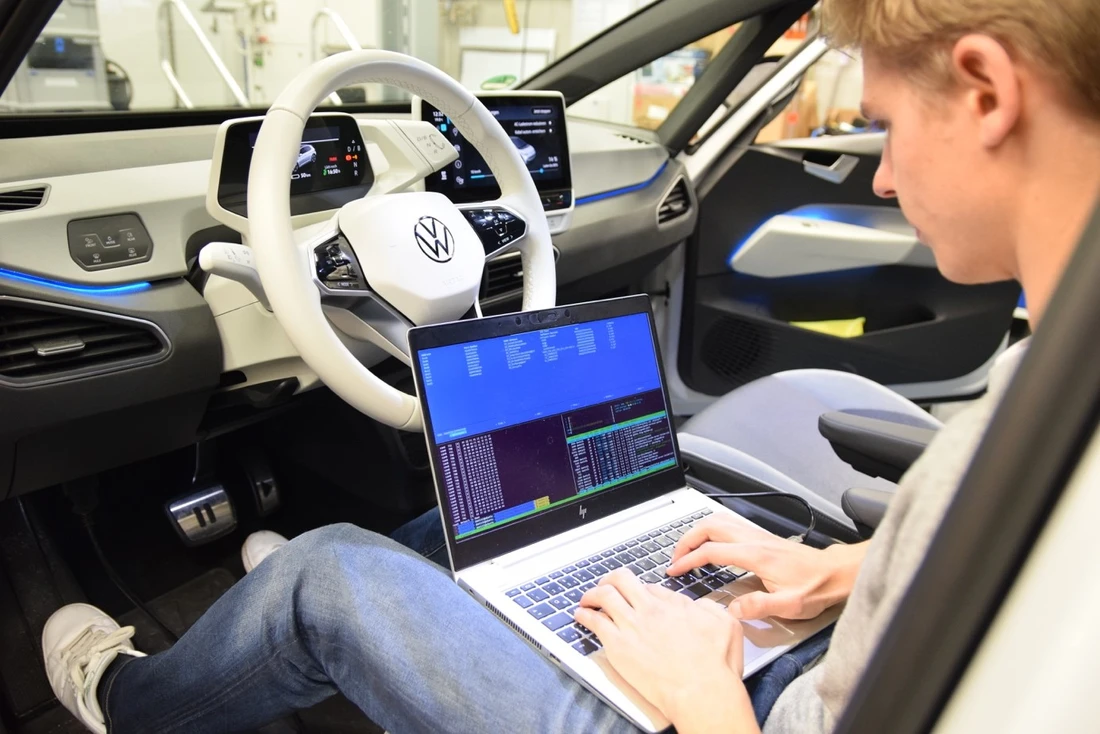HATS3 – Hacking vehicles
Accidental or burning hybrid and electric vehicles receive special attention in the media landscape. This leads to uncertainty among prospective buyers and consequently to a loss of confidence in the technology. Vehicle accidents or fires are caused, among other things, by system malfunctions. Especially the large amount of complex software inevitably leads to errors in the system, which may represent a security gap and thus lead to vulnerabilities that malicious attackers can exploit to manipulate the software. On the one hand, this impairs the functionality of an ECU, such as the battery management system, and on the other hand, the ECU can be used as a basis for further attacks. The consequences are not only damage to the image of electromobility and recall actions, but also potential damage to people and the environment. The scenarios mentioned are currently fuelled by insufficient penetration testing and a lack of standards, norms and laws for vehicle security.
The central goals of the Holistic Automotive Testing of Security, Safety, and Storage (HATS3) project are to set up a test bench for realistic security tests on vehicles while stationary and on the move, and to enable security-relevant experiments to be carried out on hybrid and electric vehicles. In addition, a method for increasing the degree of automation in the area of automotive penetration testing is to be developed in order to be able to standardise tests on the one hand and on the other hand to be able to carry them out more cost-effectively and at the same time earlier, more often and more extensively. Another goal is the targeted development of knowledge in the field of IT forensics for warranty and insurance cases of hybrid and electric vehicles.
The HATS3 project is headed by Professor Hans-Joachim Hof. Professor Hof heads the "Security in Mobility" research group at the CARISSMA Institute of Electric, Connected, and Secure Mobility. The research group regularly offers exciting theses. If you are interested, please contact Professor Hof (hof@thi.de).


![[Translate to English:] Logo Akkreditierungsrat: Systemakkreditiert](/fileadmin/_processed_/2/8/csm_AR-Siegel_Systemakkreditierung_bc4ea3377d.webp)








![[Translate to English:] Logo IHK Ausbildungsbetrieb 2023](/fileadmin/_processed_/6/0/csm_IHK_Ausbildungsbetrieb_digital_2023_6850f47537.webp)


